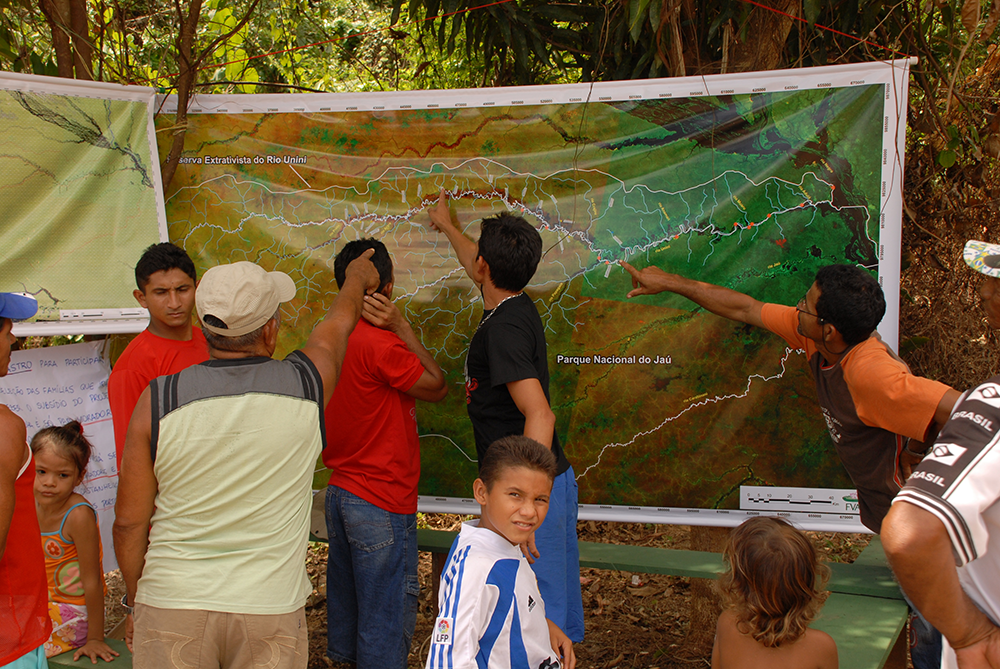

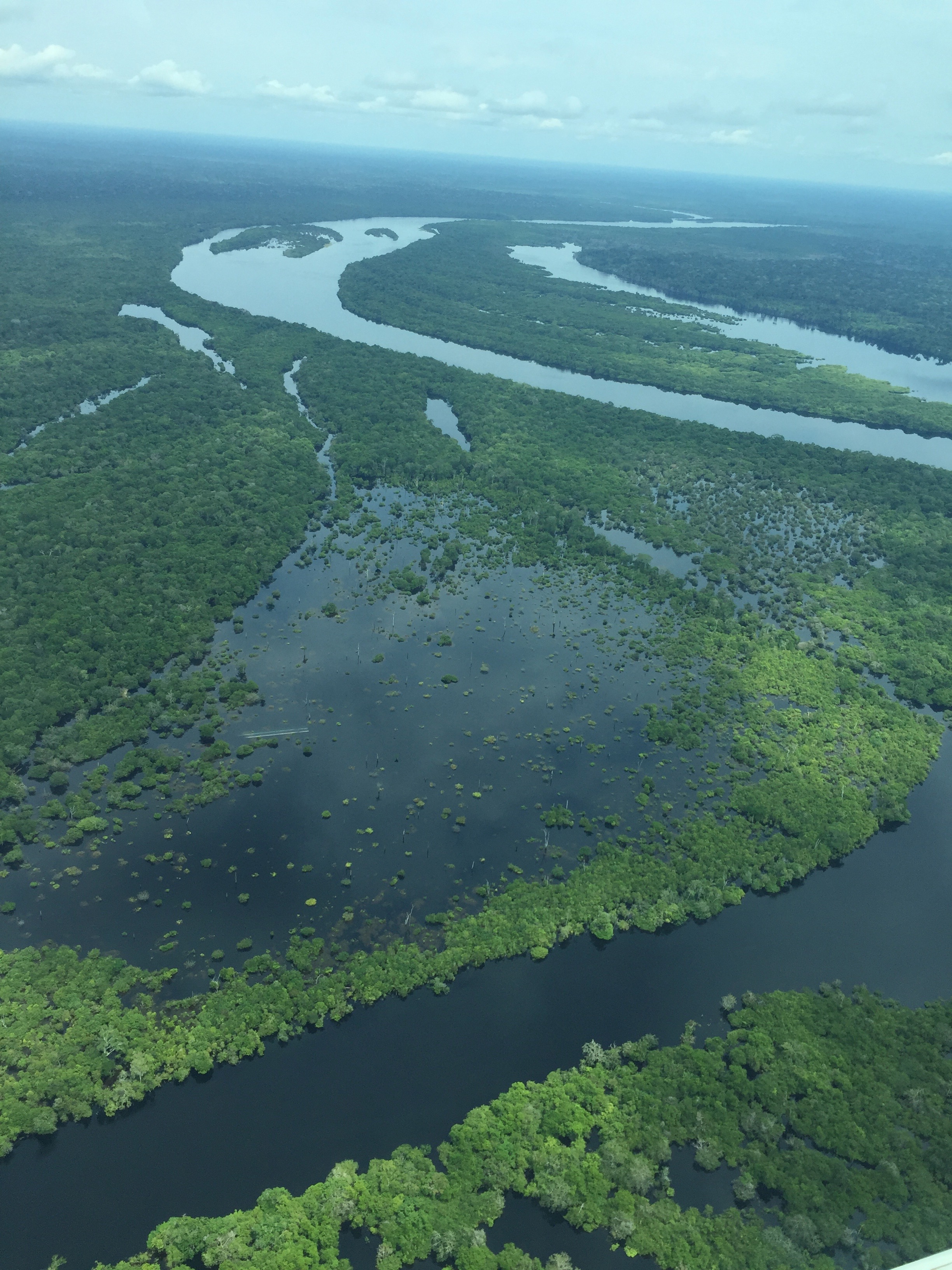
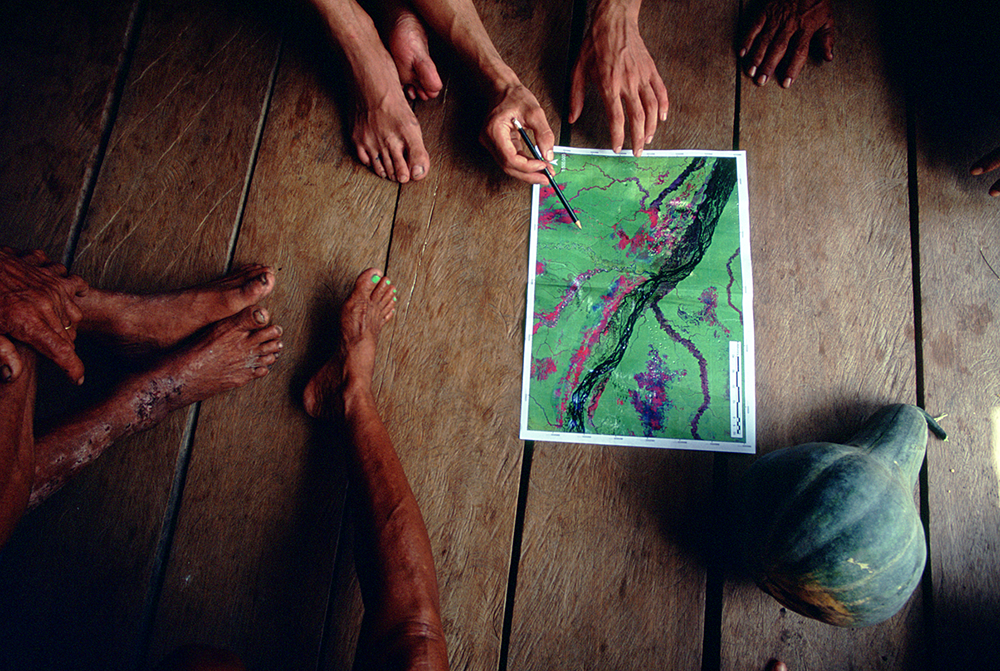
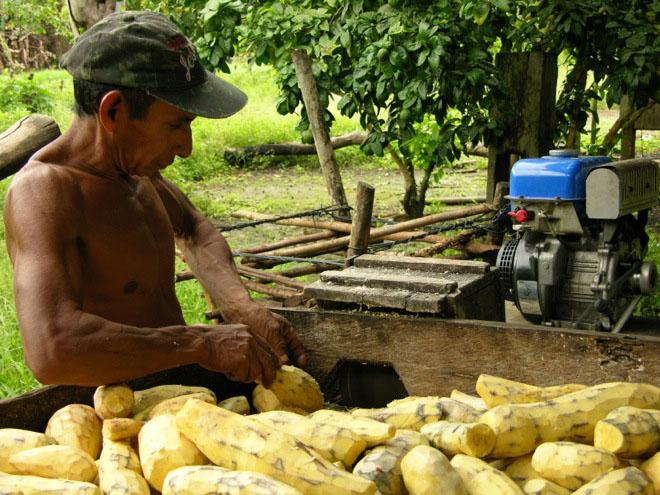
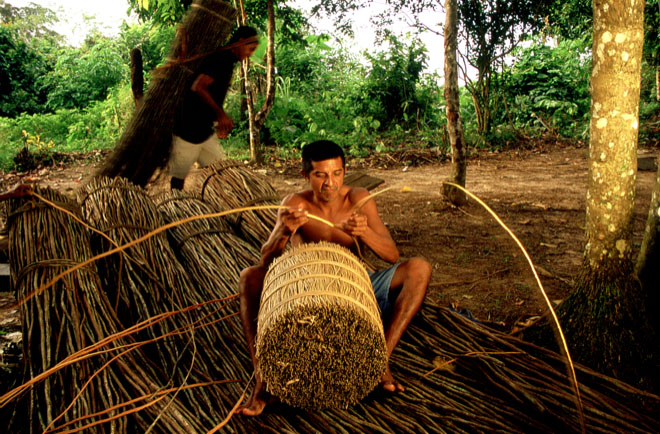
Through the process of the Unini River Extractive Reserve (RESEX) creation, and under the framework of the contract for the co-management of the Jaú National Park, the FVA implemented innovative and participative mapping methodologies for the use of natural resources, and has been investing in a process of organizational and local capacity strengthening for sustainable use of natural resources. Among them is the development and implementation of a methodology for the use of natural resources (SIMUR) in the Unini River. This served as input for a process in 2008, after the creation of the RESEX, with the development and implementation of “Terms of Commitment” with the local communities of the Unini River. These documents represent a series of agreements among the six communities living along the Unini River in the Jaú National Park and the Government of Brazil. The goal of these agreements was to regulate their permanence in the Park and to establish a co-management process with the local population and the Park administration. As a result, community participation in the decision-making processes in both conservation units (Jaú National Park and Unini River RESEX) was and is fundamental to the efficient management of both areas.
- Development of tools focused on socio-environmental conflict management.
- Promotion of social participation in the management of conservation units.
- Zoning of the protected area use and exploitation established with three distinct categories and implemented in territory thanks to a robust participatory process.
- Creation of the Unini River Mixed Agricultural Extractive Cooperative (COOMARU) for the use of natural resources.
Different planning processes for the management of both conservation units have allowed moving forward in the organizational and local capacity building strengthening for the development of economic activities. For example, the COOMARU was created, dedicated to the fair trade of Brazilian walnuts and the development of basic infrastructure to storage and benefit agricultural extractive producers. Besides that, local residents are the main source of information on use of natural resources. Therefore, the programs and projects that promote community participation in data gathering, systematization, storage, and analysis, have the potential to transform the management process of conservation units, as they organize and classify the information about production and subsistence activities within and around these areas. In this way, the dynamics of training community monitors and residents contribute to form up community leaders in charged of the protected area management.